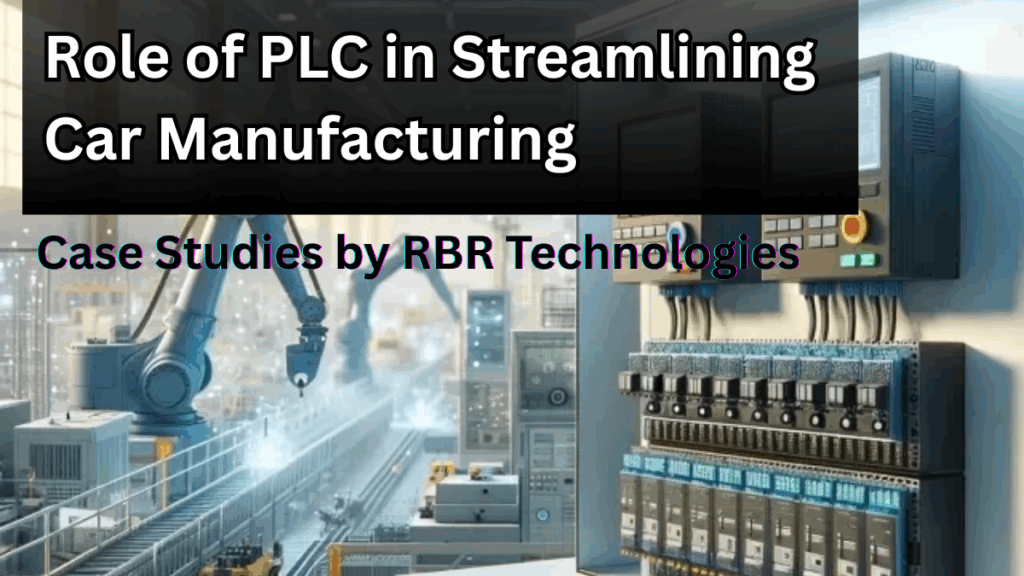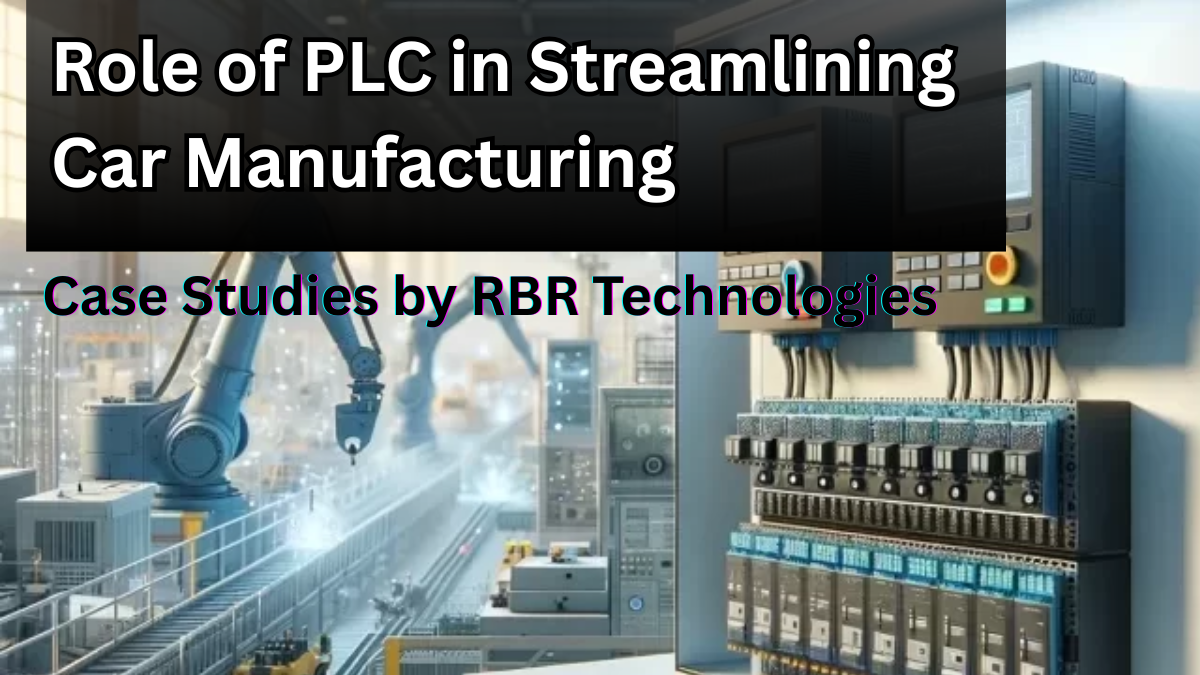In today’s fast-paced automotive world, efficiency is no longer optional—it’s essential. From welding body frames to precision painting and final inspections, automation driven by PLC systems is transforming how vehicles are made. Especially in India, RBR Technologies is showing how innovation and efficiency can go hand-in-hand with modern manufacturing.
Let’s explore how PLC control in car manufacturing India is reshaping auto production floors.

What Are PLC Systems and Why Do They Matter?
PLC (Programmable Logic Controller) systems are industrial computers used to automate complex tasks across manufacturing lines. They are the brain behind several auto processes.
Key advantages of PLC systems:
-
Real-time monitoring and machine control
-
Rapid fault detection and diagnostics
-
Programmable logic to adapt processes
-
Reliable in harsh industrial environments
How RBR Technologies Is Leading the Way
Known for cutting-edge automation solutions, RBR Technologies has played a key role in implementing PLC systems auto production projects for several top Indian car manufacturers. Their automation strategies aim to boost output, minimize errors, and enhance product quality.
Services offered by RBR Technologies:
-
PLC programming and hardware installation
-
Retrofitting and legacy system upgrades
-
SCADA and HMI integration
-
Data acquisition for real-time analysis
Case Studies: How PLC Makes a Difference
Here are three real-world case studies from RBR Technologies showing the tangible benefits of PLC control in car manufacturing India:
| Client | Goal | PLC-Based Solution | Result |
|---|---|---|---|
| Top SUV Maker | Cut body shop delays | Installed Siemens S7 PLC | Downtime reduced by 25% |
| Compact Car Brand | Speed up paint line | SCADA-integrated PLC | Improved cycle time by 30% |
| EV Manufacturer | Ensure parts traceability | IoT-enabled PLC tracking | 100% component traceability |
Benefits of PLC Systems in Auto Production
Whether it’s an internal combustion vehicle or an electric car, PLCs streamline production processes while improving reliability.
Major benefits:
-
Faster Operations: Reduced manual involvement
-
Consistent Quality: Automated error detection
-
Better Decision-Making: Real-time data feedback
-
Lower Costs: Efficiency saves labor and time
Looking Ahead: The Smart Factory Future
India is rapidly embracing smart factory concepts, and PLC automation lies at the core of this evolution. With RBR Technologies guiding implementation, manufacturers can adopt scalable and flexible PLC solutions without disrupting existing operations.
FAQs
Q1. What does PLC do in a car manufacturing plant?
PLC systems manage and automate tasks like welding, painting, and assembly. They control robotic machinery, monitor sensors, and ensure accurate execution of every step.
Q2. How does PLC automation differ from older methods?
Traditional systems rely on mechanical relays, while PLC systems offer programmable logic, faster processing, and adaptability to complex operations.
Q3. Why is PLC control in car manufacturing India growing?
Because India’s automotive sector is expanding rapidly, manufacturers need efficient and reliable systems to stay globally competitive. PLC technology delivers that.
Q4. Can PLC systems work with other smart technologies?
Absolutely. Modern PLCs can integrate with IoT sensors, cloud systems, and AI modules for predictive maintenance and smarter analytics.
Final Thoughts
With rising global standards and competitive pressure, PLC systems in auto production are no longer optional—they’re essential. Companies like RBR Technologies are empowering car manufacturers across India to step into the future of automation with confidence.
If you’re in the auto industry or looking to modernize production, understanding the power of PLC control in car manufacturing India could be your next big move.
Click here to learn more
